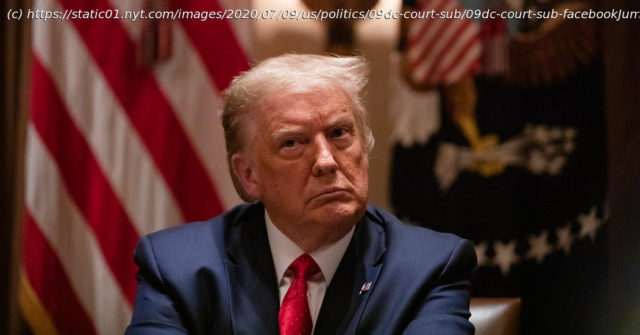The Supreme Court’s dismissal of President Trump’s claims of immunity was a reminder that institutional prerogatives still matter in Washington, even in a time of extreme partisanship.
At his campaign rally last month in Tulsa, Okla., President Trump ranked his Supreme Court appointments among the biggest achievements of his tenure. “Two great Supreme Court judges!” he boasted. “So, we have two justices of the Supreme Court, Justice Gorsuch, Justice Kavanaugh, they’re great. They are — they’re great.”
He might not have felt so warmly on Thursday after Justices Neil M. Gorsuch and Brett M. Kavanaugh categorically dismissed his claim to “absolute immunity” from investigators seeking his tax returns. In a pair of far-reaching rulings, Mr. Trump’s two appointees joined a unanimous conclusion that the president went too far by pronouncing himself exempt from legal scrutiny.
The forceful decisions represented a declaration of independence not only by Mr. Trump’s own justices but by the Supreme Court as an institution, asserting itself as an equal branch of government in the Trump era. No matter how often Mr. Trump insists that he has complete authority in this instance or that, the justices made clear on Thursday that there were in fact limits, just as they did in landmark executive power cases involving Presidents Richard M. Nixon and Bill Clinton.
That a conservative court including two of his own appointees would so decisively slap down a Republican president’s expansive claim of constitutional power served as a reminder that institutional prerogatives still matter in Washington, even in a time of extreme partisanship. The court remains broadly conservative on a variety of important issues like religious freedom, but in cases on gay rights, immigration, abortion and now executive power, it has defied the president repeatedly in recent weeks.
By forging a unanimous consensus on Mr. Trump’s immunity claim, Chief Justice John G. Roberts Jr. seemed to underline the point he made two years ago when he rebuked Mr. Trump by saying there were no “Obama judges or Trump judges.” Even on the overall votes on the two cases, both decided 7 to 2, he brought together four liberals and three conservatives, echoing the firm lines drawn by the court against other overreaching presidents.
“The truth is, President Trump’s arguments for immunity were so sweeping that it was almost impossible for any justice to really embrace them,” said Tom Goldstein, a prominent Supreme Court litigator and the publisher of Scotusblog, a website that tracks the court.
Still, the justices cut Mr. Trump something of a break by sending the two cases back to lower courts to now consider the merits of the subpoenas according to standards set by the court, additional litigation that seems likely to keep his tax returns shielded from public view at least through the general election on Nov. 3.
Many legal experts predicted that Mr. Trump ultimately could still stave off congressional demands for his returns because the justices in Trump v. Mazars USA seemed more dubious about their legitimacy and put the onus on the House to justify its need for the documents. But experts said Mr. Trump was likely to eventually lose the effort to block a New York prosecutor because the justices in Trump v. Vance put the burden on the president to come up with a compelling rationale for why the returns should not be turned over.
The president lashed out on Twitter in the minutes after the court’s rulings, once again presenting himself as a victim.
Home
United States
USA — Political A Conservative Court and Trump’s Own Appointees Declare Their Independence






